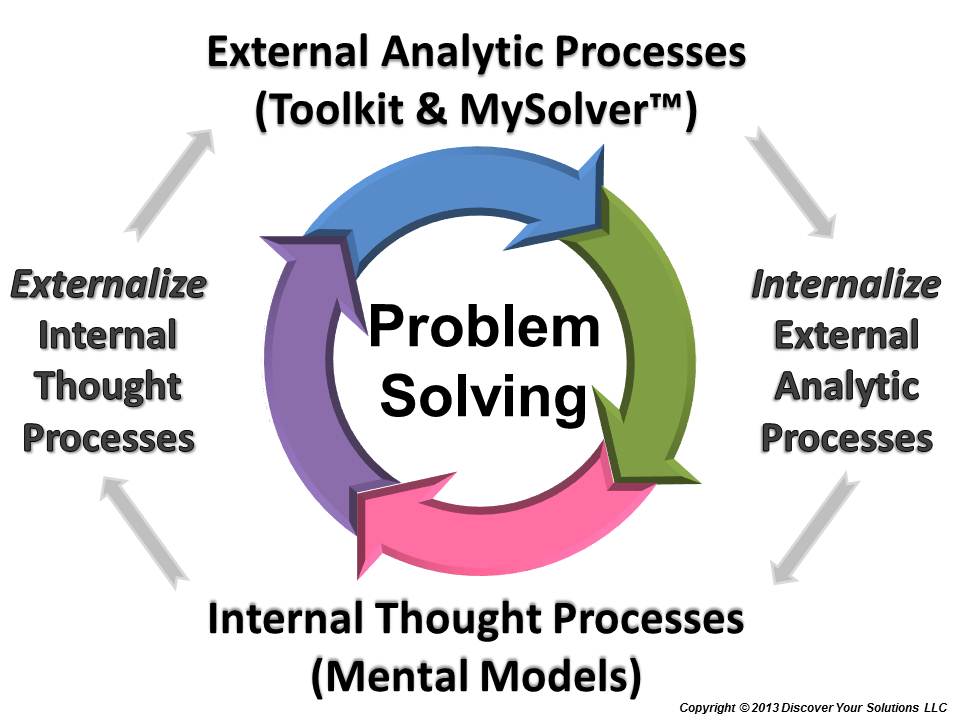Define Problem Solving
Sunday, September 29, 2013
I think most people have a pretty good understanding of the importance of problem solving in their lives. The ability to solve problems is woven deeply into the fabric of our very existence. However, a conceptual understanding of problem solving can be a little harder to get your arms around.

“What is problem solving?”
If you asked 100 people to define problem solving you may get 100 different answers. That’s because the definition of problem solving seems to be dependent on the knowledge domain that it's used.
Case in point, if you asked a doctor to define problem solving, the answer may have something to do with a diagnosis. If you asked a psychologist, the answer may have something to do with the cognitive processes of the mind. Ask a math teacher and it may have something to do with the steps in a formal proof.
Since many definitions of problem solving are influenced by the fields in which they are used, a natural question is: "Are there any general definitions of problem solving?" The answer is yes. Unfortunately, these definitions don't add much to our overall understanding of problem solving.
For example, take Webster's Dictionary definition of problem solving: "Process involved in finding a solution to a problem." Most of these general definitions of problem solving have three elements - a problem, a solution, and a process. The 'problem' and 'solution' are self-evident, so that leaves us with the ambiguous and undefined term 'process'.

This mysterious process appears to be the key to clarifying the definition problem solving. As I pointed out in my earlier examples, the process is usually bounded by the field of knowledge where the problem solving is being done. What we need is an unbounded definition that is not overly simplistic. We need a universal definition of problem solving that can be applied to any domain of knowledge. I really felt that I needed a universal definition as a prerequisite, because people from all walks of life come to my web site to solve their problems.
At it's most fundamental level, I think a universal definition of problem solving needs to include both the external (real world) and internal (cognitive) activities that are going on when you're solving a problem.
The external activities are the tactical and strategic - tools, techniques, & methods you employ to solve your problem. These are the external analytic processes you use to analyze your problem, create solutions, and evaluate your alternatives.
The internal activities are based on your mental models. Mental models are your internal representations of reality. These internal thought processes help you interpret the world around you.
My universal definition:
"Problem solving is a continuous process of externalizing internal thought processes by using analytic methodologies, then internalizing the external analysis by updating mental models."
The following diagram is a visualization of the problem solving process.

DOWNLOAD: Word version of Problem Solving Model.docx (Click link to download Word version).
DOWNLOAD: PDF version of Problem Solving Model.pdf (Click link to download PDF version).
This is a looping process that provides you with continuous feedback. You use tools to learn more about your problem. Then you use what you've learned to optimize your mental models. Improving your interpretations of your situation should offer you more opportunities for continued learning from the additional use of external analytic methodologies. This process of learning and updating continues until you eventually solve your problem.
by Keith Glein, Founder & CEO
